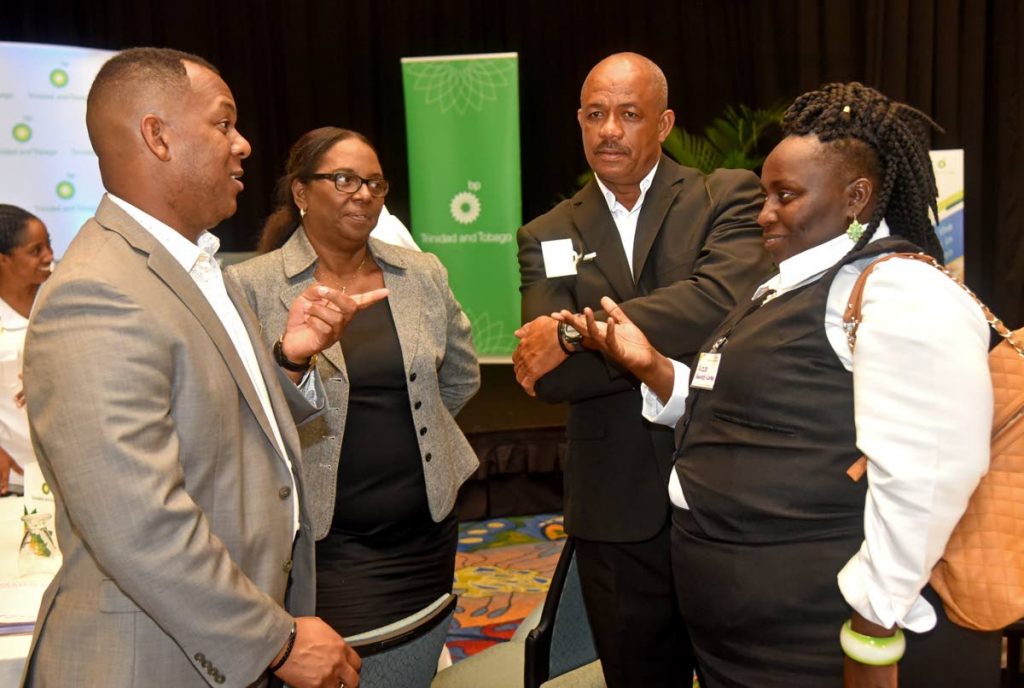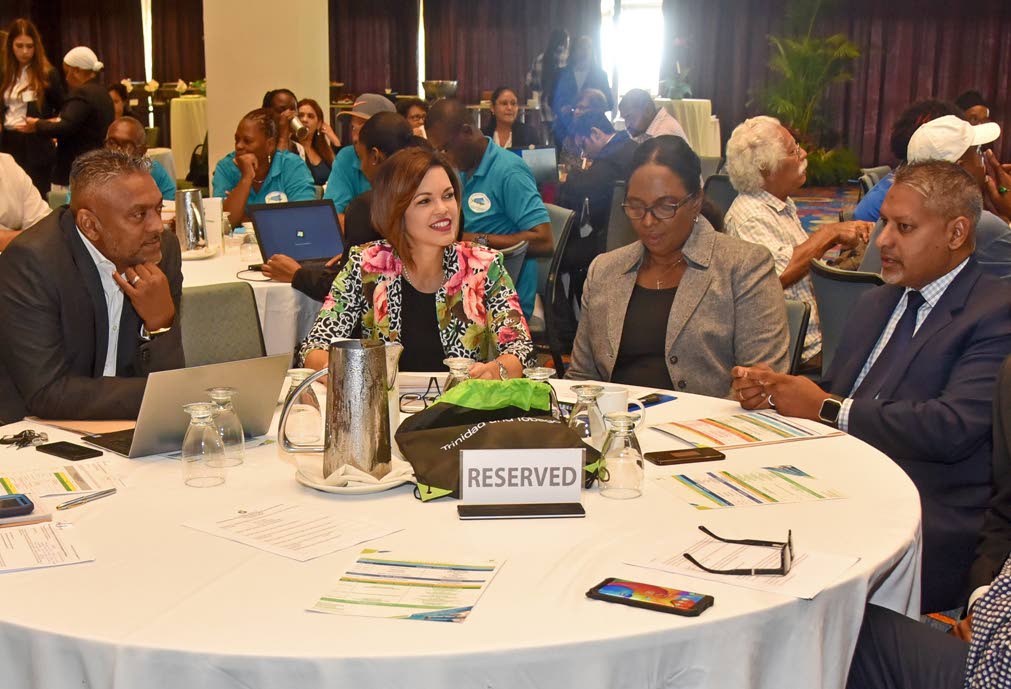BPTT facilitates a deep dive into the fishing industry

“With more rights comes greater responsibility.”
This was the core of the message delivered to local fisherfolk by Agriculture Minister Clarence Rambharat at the Sustainable Fisheries Management Workshop hosted by BPTT at the Hilton Hotel and Conference Centre, recently.
Delivering the keynote address, Rambharat outlined his expectations for the workshop and challenged the fishing community to take greater charge of the sector.
“We need more leadership from fisherfolk in the management of the infrastructure that is put in place to support the industry. You have to think about the long-term perspective and not just get caught up in the ‘hustle for today’. I applaud BPTT for providing this platform and I urge you, the fishing community of Trinidad and Tobago, to speak up and make your contribution to the future of our fishing industry,” Rambharat stated.
The Agriculture Minister also touched on the significant investments made in developing the fishing sector, including facilities in Carenage, Blanchisseuse, Cocorite andOtaheiti, as well as the fact that criminal elements were hampering the progress of fishing. He also explained the work being done to modernise the sector through the updating of legislation governing sustainable fisheries management.
Founded on BPTT’s long-standing dialogue with the fishing community in the south-eastern community of Mayaro and environs, the workshop was designed to expand the opportunity for the fisherfolk to contribute to the sustainable management of the sector and marks substantial delivery on a commitment made to the fishing community by BPTT.

Welcoming participants was Giselle Thompson, vice-president, corporate operations, BPTT. “The reality is that changes are coming to the local fishing industry and this change can be positive if we all work together in bringing about these changes. It is our hope that, positions and solutions on key issues affecting fisherfolk, energy operators and other users of the sea, will be conceptualised and that beyond our discussions today, we keep the dialogue open and push forward with implementable solutions. We are pleased to continue investing in the people of Trinidad and Tobago and in processes that spur national development like this fisheries workshop,” Thompson explained.
The workshop saw participation from a wide cross-section of stakeholders, including fisherfolk organisations from across Trinidad and the sister isle of Tobago, the Fisheries Division of the Ministry of Agriculture, the Institute of Marine Affairs, the Environmental Management Agency, the University of Trinidad and Tobago, the Caribbean Fisheries Training and Development Institute, the Trinidad and Tobago Coast Guard, the Ministry of Energy and Energy Affairs and representatives of other energy-based companies.
Presentations were made on a number of critical topics including legislation governing sustainable fisheries management, the role of fisheries, local knowledge and participatory geographic information systems, the state of fishing facilities in Trinidad and Tobago, changes in the fisheries sector, marine safety and security, illegal, unreported and unregulated fishing and the draft national relief guidelines to fishers for seismic operations.
In response to the challenge issued by Minister Rambharat, representatives of the local fishing community spoke about the need for better infrastructure and more dialogue with all stakeholders.


Comments
"BPTT facilitates a deep dive into the fishing industry"